The Dark Reign of Mao Zedong: Unveiling the Mysterious Facts
Millions of intellectuals, teachers, and perceived "counter-revolutionaries" were publicly humiliated, imprisoned, or murdered. The Red Guards, a militant youth movement encouraged by Mao, rampaged the nation and destroyed cultural artefacts while persecuting religious figures and dismantling educational institutions.
Total Views |
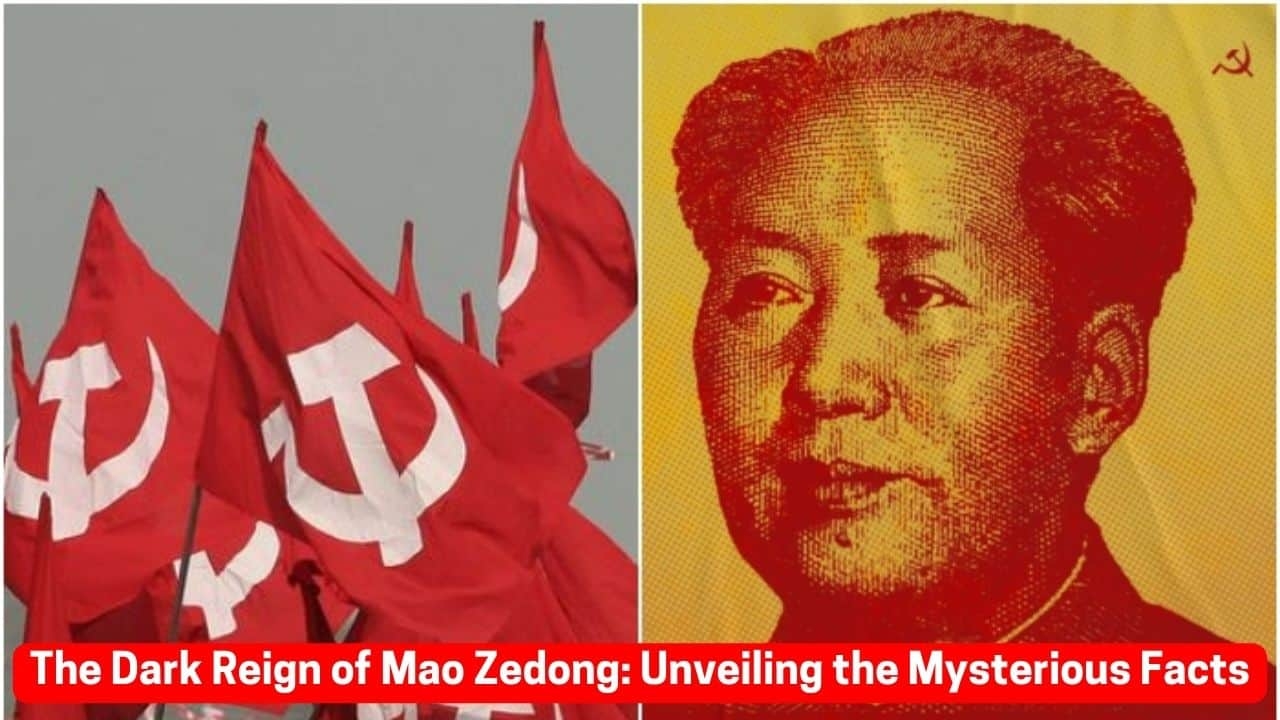
While most people will imagine Mao Zedong, the founding father of the People's Republic of China, as a revolutionary hero who freed his country from the chains of imperialism and feudalism, he will appear to be a controversial and mysterious figure on closer scrutiny. His actions, policies, and leadership were inhumane and brought countless sufferings to millions. This article relates the mysterious/dark aspects of Mao Zedong's rule, highlighting atrocities and machinations that defined his leadership.
The Great Leap Forward: A Catastrophic Vision
Probably the foulest single episode of Mao's rule was the Great Leap Forward, a vastly ambitious campaign launched in 1958 to transform China from an agrarian society practically overnight into a socialist power through collectivization and industrialization. Mao had a dream that was deficient in realistic planning; it merely plunged headfirst into a sheer disregard for human life.
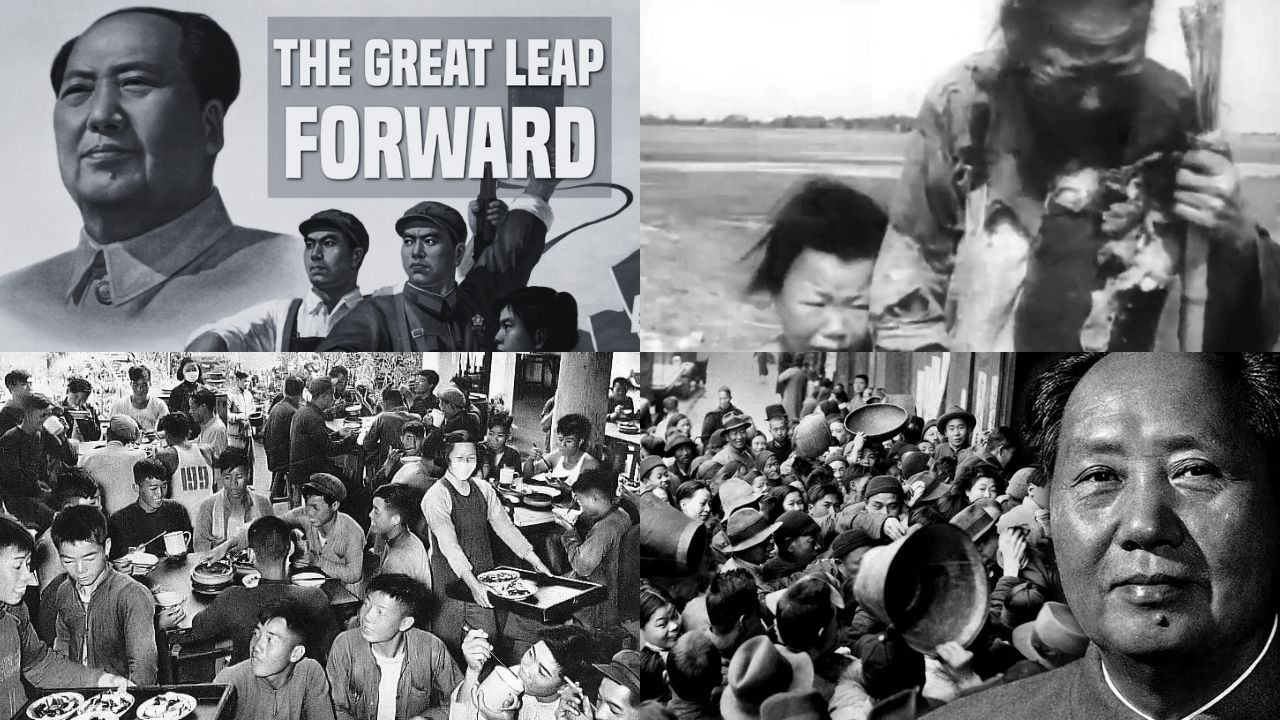
The Great Leap Forward embodies one of the most terrible famines to have happened in human history. Estimates put death tolls between 15 and 45 million people. Unrealistic production targets were not only insisted on by the late Mao, but brutal oppression of dissent paved the way for local officials to falsify production figures in an effort to fight off punishment. This then led to massive grain requisition-based shortages due to inflated numbers, and many millions were left starving.
These policies of Mao further instigated forced labour and mass mobilisation of peasants to ill-conceived projects, including backward furnaces for steel production. Not only did they end in spectacular failure, but critical resources were also diverted away from agriculture, further intensifying the famine. Indeed, his disregard for his people's suffering is best summed up by Mao's dismissive attitude toward millions of deaths with the statement "To distribute resources evenly will only ruin the Great Leap Forward."
The Cultural Revolution: A Reign of Terror
In 1966, he initiated the Cultural Revolution—a decade of political and social chaos aimed at re-entrenching his control over the Communist Party and the nation. Persecution, torture, and murder became the hallmarks of the Cultural Revolution as Mao purged perceived enemies—many he said were against his ideological vision.
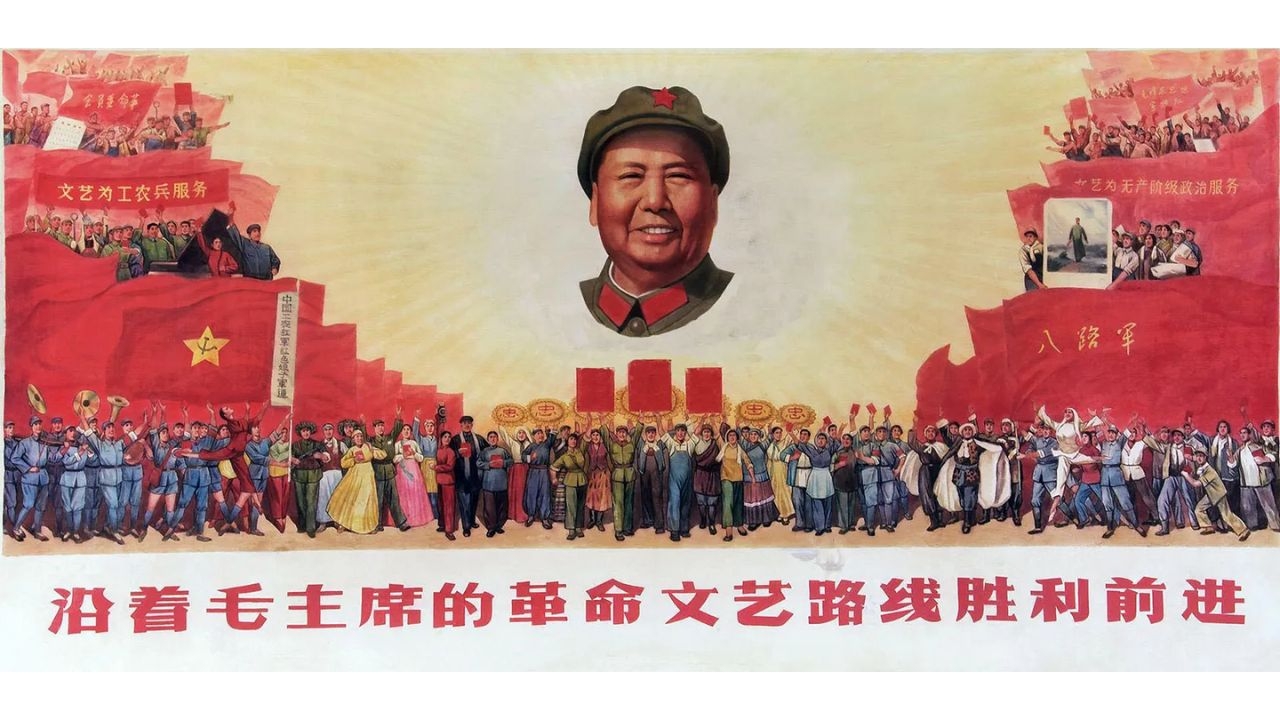 Millions of intellectuals, teachers, and perceived "counter-revolutionaries" were publicly humiliated, imprisoned, or murdered. The Red Guards, a militant youth movement encouraged by Mao, rampaged the nation and destroyed cultural artefacts while persecuting religious figures and dismantling educational institutions. The Cultural Revolution completely destroyed China's cultural heritage and left indelible marks on its social fabric.
Millions of intellectuals, teachers, and perceived "counter-revolutionaries" were publicly humiliated, imprisoned, or murdered. The Red Guards, a militant youth movement encouraged by Mao, rampaged the nation and destroyed cultural artefacts while persecuting religious figures and dismantling educational institutions. The Cultural Revolution completely destroyed China's cultural heritage and left indelible marks on its social fabric.It was a period of brutal factional infighting, as students and young people turned on one another in a blood-soaked race to prove their loyalty to Mao's cause. The social order had broken down: families were torn apart, and communities slid into chaos. Nothing can illustrate better the manipulative and callous nature of Mao than the fact that he refused to intervene and stop the violence until it had served his purposes.
The Persecution of Political Rivals
This paranoia and lust for absolute power that Mao had inherited, with ruthless elimination of political rivals and any others perceived to be threatening him, did not spare the President of China, Liu Shaoqi, also one of the most important leaders of the Communist Party. Initially a close confidant of Mao, Liu fell out of grace during the Cultural Revolution because his policies were too moderate and he opposed Mao's radicalism.
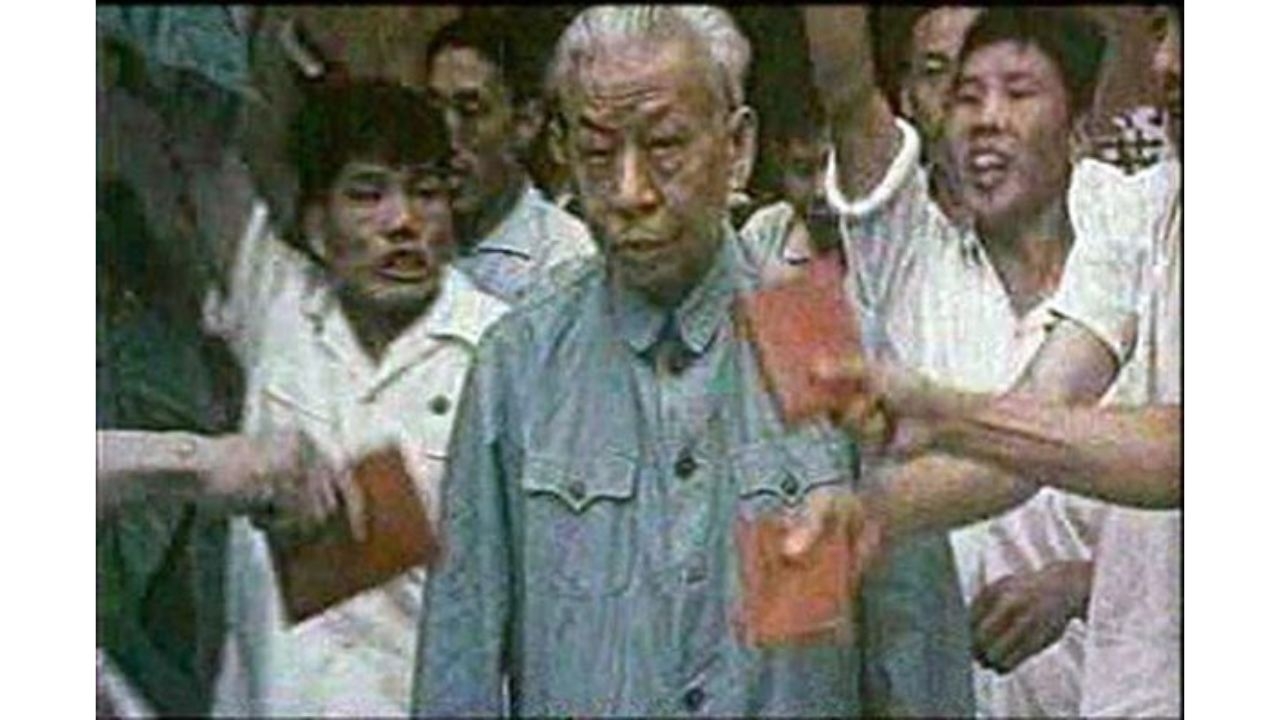
Liu was brutally tortured and humiliated in public before being locked up in solitary confinement, where he later died in very horrible conditions. Similar was the fate of many other high-ranking officials and perceived dissidents—a pointer that Mao did not give a dime for any person, however great, if he stood on his way.
Among other things, his tactics included public denunciations, show trials, and forced confessions, all designed to crush the spirit of his opponents and deter any future dissent. In fact, the fear and distrust created by these purges incapacitated the proper functioning of the Communist Party, as officials became more concerned with their survival than governance.
The Hundred Flowers Campaign: Ambush of Dissent
In 1956, following the disaster of the government imposture of agricultural improvement, Mao launched an initiative called the Hundred Flowers Campaign, apparently to allow intellectuals and citizens to voice their criticisms of the government and make suggestions for improvement. This rapidly became a sinister trap.
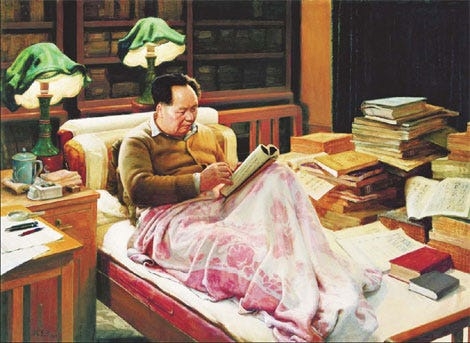
When criticism of the Party and Mao himself began pouring in, the campaign was abruptly brought to a halt. Those who had spoken out were labelled as "rightists" and faced severe reprisals, including imprisonment, forced labour, and even execution. The Hundred Flowers Campaign served as a very small but stern warning to the masses concerning the dangers of dissent and further consolidated Mao's grip on power.
In the Hundred Flowers Campaign, Mao showed cunning in unmasking people with hostile views and liquidating them. Indeed, enticing intellectuals into such a false sense of security, he could identify and weed out those who would later become strong contenders for power and therefore a threat to his rule.
The Manipulation of History
Under Mao, the version of events in Chinese history was solely in his hands, and to this end, he twisted the course of history onto his side. The Communist Party's propaganda machine persistently touts the image of Mao while erasing or distorting all events that would tarnish his image.
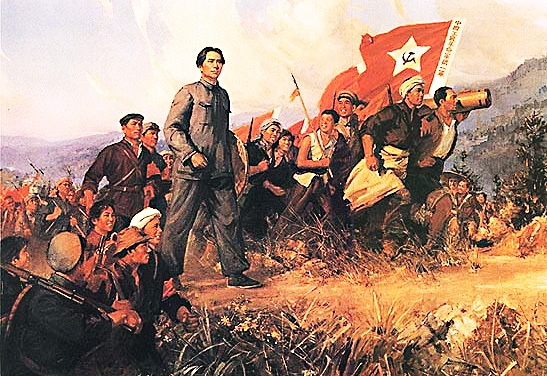
One of the examples is the Long March, which was the Red Army's strategic retreat in 1934-1935. According to the description officially suggested, it is a heroic and final victory personally led by Mao; however, this case is much more complex in reality. The leadership of Mao during the Long March was accompanied by heavy losses and internal fighting for power, which already became unnoticeable in the official accounts.
Subsequently, huge-sized famines during the Great Leap Forward and atrocities during the Cultural Revolution were also designs of his regime. Understandably, this manipulation of history was used to sanitise views of Mao for future generations, obscuring the magnitude of his tyranny.
The Personality Cult
Mao cultivated an acutely strong personality cult, in which he put himself across as an infallible leader whose thoughts and teachings were beyond reproach. Everywhere were his images, and his Little Red Book of quotations became obligatory property for every Chinese citizen. In other words, there is no end to this barrage of Mao's ideology calculated to instil a chilling sense of fear and forcing into line—not conducive to the arousal of critical thinking or opposition.
This personality cult has been taken to its furthest extent during the Cultural Revolution, where just about no one could challenge Mao's authority. Blind obedience to Mao and his ideas meant going to extremes in persecuting those who dared disagree with his directives, thus more firmly entrenching his dictatorial rule.
The personality cult extended into his personal life as well, with whims and desires being indulged without being questioned. Hedonism, excess, accounts of lavish lifestyles, multiple affairs—Mao's private life was in sharp contrast to the image otherwise projected as austere and puritanical across the world by him.
The Betrayal of the Peasantry
Despite all of Mao's proletarian rhetoric, very often his policies betrayed the very people that he claims to champion. Very quickly during the Great Leap Forward, the forced collectivization of agriculture led to widespread famine and suffering in the rural population. That was compelling peasants to live and work together in communes against their will, mandating it, and depriving them of their usual livelihoods and autonomy.
“Additionally, the Cultural Revolution disrupted agricultural production and further worsened the peasantry's hardships. Mao's ideological zeal often made him blind to practical realities and needs for the rural masses, hence adopting policies that exacerbated their plight.”
Mao's betrayal of the peasantry is also encapsulated in the tormented fate dealt to rural intellectuals and traditional cultural practices. The Cultural Revolution targeted village elders, religious figures, and folk traditions, stripping rural communities of their cultural identity and leadership structures.
The Human Cost
The reign of Mao was truly awful, with a death toll of staggering proportions: Mao is held responsible, directly or indirectly, for more than 45 million deaths. Just these two alone—the Great Leap Forward and the Cultural Revolution—make up a huge percentage of this awful count. In addition, there were forced labour camps on enormous scale—laogai—and scores of political dissidents being persecuted that contributed to that immense amount of suffering the Chinese population had to endure under Mao.
His legacy is also one of psychological trauma for millions of Chinese citizens, the constant fear of persecution, rupture of social and family ties, and induction into Mao's ideological cult that left deep and lasting scars on the national psyche.
Conclusion
There can be no easy assessment of the legacy of Mao Zedong. While his supporters credit him with aggregating China and providing an impetus toward its modernization, the harsh realities of his rule cannot be swept under the carpet. The Great Leap Forward, the Cultural Revolution, and even the merciless elimination of political opponents—a leader tipped in ambition and ideological fervor often spelled disaster.
History manipulation, personality cult nurturance, and peasantry betrayment underscore more the enigmatic and oppressing nature of his leadership. This proves one major point: that in such a fast-paced, self-reflexive country, China needs to be able to come to terms with the full extent of Mao Zedong's impact upon the nation and his people. His regime stands as a grim reminder of the excesses that come with unfettered power and an illustration of humans' cost in ideological fanaticism.
Article by
Shomen Chandra
Sub Editor, The Narrative


